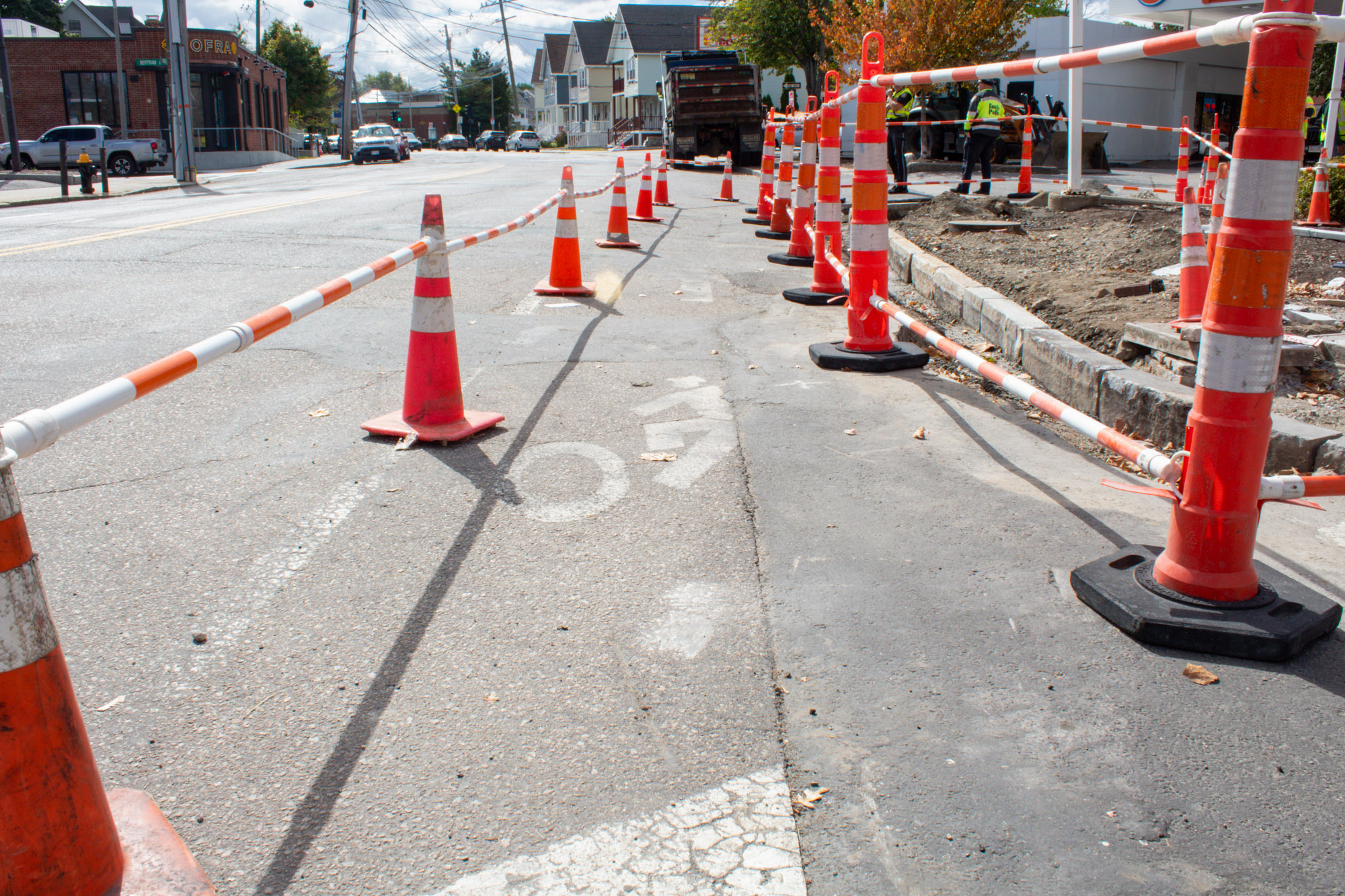The development of separated bike lanes along Western Avenue in Allston-Brighton is scheduled to begin as early as this month as part of a citywide initiative to improve bike infrastructure.

Western Avenue, between North Harvard Street and Leo Birmingham Parkway, is among the top 3% of streets in Boston with the highest number of injury-causing crashes impacting bike riders, according to the City of Boston.
The Boston Planning Department’s Western Avenue Corridor Study and Rezoning, which was adopted in 2022, first proposed the creation of separated bike lanes along the avenue. The study, in conjunction with the ongoing Allston-Brighton Mobility Plan, aims to improve transportation accessibility and engage community members in the planning of Western Avenue.
District 9 City Councilor Liz Breadon, who represents Allston-Brighton, said the mobility plan is especially important in the neighborhood because many residents do not own cars.
“We really have to focus on developing multimodal uses for the roadways,” Breadon said. “That means improving pedestrian safety, improving bicycle safety and then working on actually improving visibility and safety for motorists.”
The design for the project includes separated bike lanes marked with paint and flex posts, patch-paving repairs and intersection safety improvements at North Harvard Street and Western Avenue, according to the City of Boston’s website.
Mayor Michelle Wu announced the Western Avenue project as part of her Everyone Deserves Safe Streets Plan to expand the city’s bike network so that “50% of residents will be within a 3-minute walk from a safe and connected bike route.”
Breadon said the new bike lanes are necessary given the “dangerous conditions for bicycles” in the corridor.
“There’s a lot of through traffic in this space,” Breadon said. “[Cars] come in through this corridor, often at high speeds. We get a lot of calls from people concerned about safety and this particular corridor.”
The current condition of Western Avenue includes two vehicle traffic lanes, two parking lanes and a single painted bike lane on one side along certain sections of the street.
The addition of bike lanes will result in the reallocation of 181 on-street parking spaces, a 5% loss of Western Avenue parking, which may hinder businesses in the area.
Jo-Ann Barbour, executive director of Charlesview, Inc., a non-profit that does philanthropic work for the Allston-Brighton community, said local businesses are “very concerned” about not knowing where their customers can park after the parking spaces are removed.
“The last thing we want to have happen is pitting bicyclists against businesses,” Barbour said.
Kelly McGrath, executive director of Brighton Main Streets, shared similar concerns about small businesses in the area that will be “directly affected” by the loss of parking.
“[Businesses are] nervous,” McGrath said. “I don’t blame them.”
The city developed plans to offset the loss of parking, but Barbour — who said she is speaking with local and state government officials to push for an interim parking plan — said small businesses need a plan now.
“The city is saying that down the road there will be replacement parking, and that’s great,” Barbour said. “But for the small businesses on Western Ave., two, three, four years could put them out of business.”
Breadon said it is difficult to predict when developments along Western Avenue will be completed, but residents will see safety improvements as the project develops.
“It’s incremental in terms of rolling out this more robust infrastructure for bicycles,” Breadon said. “But ultimately, as Western Ave. is built out going forward, we will see better bicycle infrastructure.”






















































































































